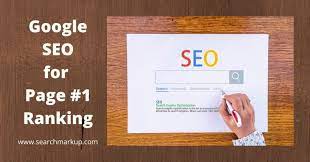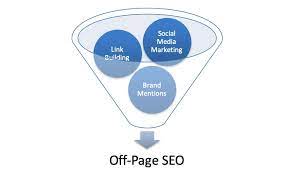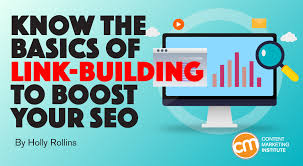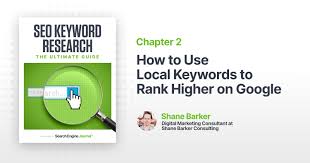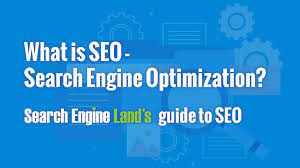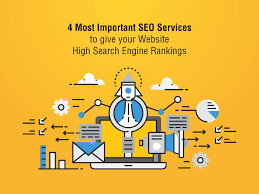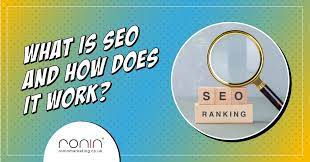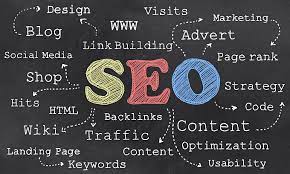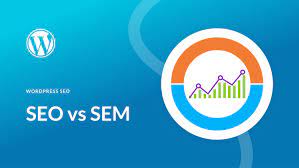The Power of SEO Link Building
The Power of SEO Link Building
SEO link building is a crucial aspect of any successful search engine optimisation strategy. In the digital landscape, links are like pathways that connect different websites and signal to search engines the relevance and authority of a particular site. By acquiring high-quality backlinks from reputable sources, websites can improve their visibility, credibility, and ultimately their rankings in search engine results pages.
Why is Link Building Important?
Search engines like Google consider backlinks as votes of confidence from other sites. The more quality backlinks a website has, the more likely it is to be viewed as a valuable resource by search engines. This can lead to higher organic rankings, increased organic traffic, and ultimately more conversions for the website.
Types of Links
There are several types of links that play a role in SEO link building:
- Natural Links: These are links that are given editorially without any effort from the website owner.
- Manual Outreach Links: These are links acquired through outreach efforts such as email outreach or guest posting.
- Self-Created Links: These are links created by adding a website link to online directories, forums, or comments.
- Non-Editorial Links: These are links that are not editorially given but can still impact SEO.
Best Practices for Link Building
To build an effective link building strategy, consider the following best practices:
- Create High-Quality Content: Valuable and relevant content naturally attracts backlinks from other sites.
- Guest Blogging: Contribute guest posts to reputable websites in your industry to earn quality backlinks.
- Broken Link Building: Find broken links on other websites and offer your content as a replacement.
- Social Media Promotion: Share your content on social media platforms to increase visibility and encourage linking.
- Maintain a Diverse Backlink Profile: Aim for a mix of different types of backlinks to avoid overreliance on one source.
In Conclusion
In conclusion, SEO link building remains a fundamental component of any successful SEO strategy. By earning high-quality backlinks from authoritative sources through ethical practices, websites can improve their online presence and drive organic traffic. Incorporating link building into your overall SEO efforts can lead to long-term benefits and sustainable growth in search engine rankings.
Comprehensive Guide to SEO Link Building: Top 24 FAQs Answered
- What is the difference between backlinks and link building?
- What are SEO backlinks?
- Does link building still work for SEO?
- Is link building in SEO Still Effective in 2022?
- Does link building help SEO?
- Which link building activities good for SEO?
- What is the concept of link building?
- How do I start link building in SEO?
- Is link building good for SEO?
- Does link building still work?
- What is a link building in SEO?
- What is resource link building in SEO?
- What is PR link building in SEO?
- What kind of link building strategy is best for SEO?
- Does building links help SEO?
- How can I improve my SEO link building?
- What is link building in off page SEO?
- Is link building still relevant to SEO?
- What are link building techniques?
- Is link building still relevant to SEO 2022?
- How do I make backlinks for SEO?
- What are the best ways for link building in SEO?
- What is link building for SEO 2023?
- What is link building in SEO example?
What is the difference between backlinks and link building?
When discussing SEO link building, it is important to understand the distinction between backlinks and the process of link building. Backlinks refer to external links that direct users from one website to another. They serve as endorsements from other sites, indicating credibility and relevance to search engines. On the other hand, link building is the proactive strategy of acquiring these backlinks through various methods such as outreach, content creation, and networking. While backlinks are the end result of successful link building efforts, link building involves the deliberate actions taken to attract and secure these valuable links for enhancing a website’s authority and visibility in search engine rankings.
What are SEO backlinks?
SEO backlinks, often referred to simply as backlinks, are external links from other websites that point to your website. In the realm of search engine optimisation (SEO), backlinks play a crucial role in determining the authority and credibility of a website. Essentially, backlinks act as votes of confidence from other sites, signalling to search engines that your content is valuable and worthy of being ranked higher in search results. Quality backlinks from reputable sources can significantly impact a website’s visibility and organic ranking, making them an essential element of any effective SEO link building strategy.
Does link building still work for SEO?
In the realm of search engine optimisation (SEO), the question of whether link building still holds value is a common one. The answer is a resounding yes. Link building remains a crucial factor in determining a website’s authority and relevance in the eyes of search engines. While the landscape of SEO may have evolved over time, quality backlinks from reputable sources continue to play a significant role in boosting a website’s organic rankings and visibility. When done strategically and ethically, link building can enhance a website’s credibility, drive organic traffic, and ultimately contribute to its overall success in the competitive digital sphere.
Is link building in SEO Still Effective in 2022?
The question of whether link building in SEO is still effective in 2022 remains a common query among digital marketers and website owners. Despite the evolving landscape of search engine algorithms, link building continues to play a crucial role in enhancing a website’s authority and visibility. While search engines like Google have become more sophisticated in evaluating links, high-quality backlinks from reputable sources remain a strong ranking factor. In 2022, focusing on ethical and strategic link building practices can still yield significant benefits by improving organic rankings, driving targeted traffic, and establishing credibility within the digital ecosystem.
Does link building help SEO?
The question “Does link building help SEO?” is a common query among those seeking to enhance their website’s search engine visibility. The answer is a resounding yes. Link building plays a crucial role in SEO by establishing credibility, authority, and relevance for a website in the eyes of search engines. Quality backlinks from reputable sources act as signals that indicate the trustworthiness and value of a site, ultimately leading to improved rankings in search results. By strategically acquiring high-quality links through ethical practices, websites can boost their SEO efforts and drive organic traffic to achieve long-term success online.
Which link building activities good for SEO?
When considering link building activities for SEO, it is essential to focus on strategies that prioritise quality over quantity. Good link building activities for SEO include creating high-quality and relevant content that naturally attracts backlinks, engaging in guest blogging on reputable websites within your industry to earn quality backlinks, utilizing broken link building by offering your content as a replacement for broken links on other websites, promoting your content on social media platforms to increase visibility and encourage linking, and maintaining a diverse backlink profile to avoid overreliance on one source. By incorporating these ethical practices into your link building efforts, you can enhance your website’s online presence, drive organic traffic, and improve your search engine rankings effectively.
What is the concept of link building?
The concept of link building in SEO revolves around the practice of acquiring hyperlinks from other websites to your own site. These backlinks serve as pathways that connect different web pages and signal to search engines the relevance and credibility of a website. By obtaining quality backlinks from reputable sources, websites can enhance their authority, improve their visibility in search engine results pages, and ultimately boost their organic rankings. Link building is a fundamental aspect of SEO that plays a crucial role in driving traffic, increasing domain authority, and establishing a strong online presence for websites looking to succeed in the competitive digital landscape.
How do I start link building in SEO?
To start link building in SEO, it is essential to begin by creating high-quality, relevant content that others in your industry will find valuable and want to link to. Focus on producing engaging articles, blog posts, infographics, or videos that address common questions or provide unique insights. Once you have compelling content, reach out to relevant websites and blogs in your niche to establish partnerships or guest posting opportunities. Additionally, consider leveraging social media platforms to promote your content and attract attention from potential link sources. By prioritising quality content creation and strategic outreach efforts, you can lay a solid foundation for effective link building in SEO.
Is link building good for SEO?
The question of whether link building is beneficial for SEO is a common one in the digital marketing realm. In essence, link building plays a crucial role in enhancing SEO efforts. Quality backlinks from reputable sources serve as a vote of confidence for a website, signalling its credibility and authority to search engines like Google. By acquiring relevant and high-quality backlinks, websites can improve their visibility, organic rankings, and overall online presence. Therefore, when conducted ethically and strategically, link building proves to be a valuable asset in boosting SEO performance and driving organic traffic to websites.
Does link building still work?
In the realm of SEO, the question of whether link building still holds value is a common one. The answer is a resounding yes. Link building remains a cornerstone of effective search engine optimisation strategies. While search engine algorithms have evolved over time, the significance of quality backlinks from reputable sources has not diminished. In fact, acquiring relevant and authoritative backlinks continues to be a vital factor in improving website visibility, credibility, and organic rankings. When done correctly and ethically, link building can significantly contribute to enhancing a website’s online presence and driving organic traffic.
What is a link building in SEO?
In the realm of SEO, link building refers to the process of acquiring hyperlinks from other websites to your own site. These backlinks act as pathways that connect different web pages and signal search engines about the credibility and relevance of a particular website. Link building is a crucial aspect of SEO as search engines like Google consider backlinks as votes of confidence from other sites. By strategically obtaining high-quality backlinks from reputable sources, websites can enhance their authority, improve their visibility in search engine results pages, and ultimately boost their organic traffic and rankings.
What is resource link building in SEO?
Resource link building in SEO involves acquiring backlinks by creating valuable and informative resources on a website that other sites want to link to. These resources can be in the form of guides, tutorials, tools, or any content that provides significant value to users. By offering high-quality resources, websites can attract natural backlinks from other sites looking to reference or share useful information with their audience. Resource link building not only helps improve a website’s authority and credibility in the eyes of search engines but also enhances user experience by providing valuable content for visitors.
What is PR link building in SEO?
PR link building in SEO refers to the practice of acquiring backlinks from high-authority websites through public relations strategies. These links are obtained by building relationships with journalists, bloggers, and influencers to secure placements on reputable online publications. PR link building aims to enhance a website’s credibility and visibility in search engine results by associating it with trusted sources. By leveraging PR tactics to earn quality backlinks, websites can improve their domain authority and organic search rankings, ultimately driving more traffic and establishing a strong online presence.
What kind of link building strategy is best for SEO?
When considering the best link building strategy for SEO, it is essential to focus on quality over quantity. A successful approach involves acquiring backlinks from authoritative and relevant websites within your industry. Natural link building through the creation of valuable and engaging content that naturally attracts links is highly effective. Additionally, manual outreach efforts such as guest blogging on reputable sites, collaborating with influencers, and participating in industry-specific forums can help establish a strong backlink profile. Diversifying your link sources and avoiding black hat techniques ensure a sustainable and ethical link building strategy that positively impacts SEO performance in the long run.
Does building links help SEO?
Building links plays a crucial role in enhancing SEO performance. When done effectively, link building can significantly improve a website’s search engine rankings and visibility. Quality backlinks from reputable sources act as signals of trust and authority to search engines, indicating that the linked site is a valuable resource. By acquiring relevant and high-quality backlinks, websites can strengthen their online presence, increase organic traffic, and ultimately boost their SEO efforts. However, it is important to note that link building should be approached strategically and ethically to ensure long-term success in improving SEO performance.
How can I improve my SEO link building?
To enhance your SEO link building efforts, focus on creating high-quality and relevant content that naturally attracts backlinks from reputable websites. Engage in manual outreach to connect with industry influencers and websites for guest posting opportunities. Utilise broken link building strategies by identifying broken links on relevant sites and offering your content as a replacement. Leverage social media platforms to promote your content and encourage sharing and linking. Remember to maintain a diverse backlink profile by acquiring links from various sources to strengthen your website’s authority and improve its search engine rankings. Consistent effort, strategic planning, and ethical practices are key to improving your SEO link building effectively.
What is link building in off page SEO?
In the realm of off-page SEO, link building plays a pivotal role in enhancing a website’s authority and visibility across the web. Link building, as a crucial aspect of off-page SEO, involves acquiring external links from reputable websites to your own site. These backlinks act as signals to search engines, indicating the credibility and relevance of your website. By strategically building a network of high-quality backlinks, businesses can improve their search engine rankings, drive organic traffic, and establish themselves as authoritative sources within their industry. Effective link building in off-page SEO requires a thoughtful approach that focuses on acquiring relevant and natural links from diverse sources to boost overall online presence and domain authority.
Is link building still relevant to SEO?
In the realm of SEO, the question of whether link building remains relevant is a common one. The answer is a resounding yes. Link building continues to play a crucial role in SEO strategies as it serves as a strong signal of a website’s authority and relevance to search engines. Quality backlinks from reputable sources not only enhance a site’s credibility but also contribute significantly to its organic search rankings. While search engine algorithms evolve, the importance of acquiring high-quality links through ethical practices remains steadfast in enhancing a website’s visibility and driving organic traffic. Therefore, link building remains an essential pillar in the realm of SEO, offering long-term benefits for websites looking to improve their online presence and search engine performance.
What are link building techniques?
Link building techniques encompass a variety of strategies used to acquire backlinks from external websites to boost a site’s search engine ranking. Some common link building techniques include guest blogging, where content is contributed to other websites in exchange for a backlink, broken link building, which involves finding broken links on other sites and offering replacement links to one’s own content, and outreach campaigns to request backlinks from relevant and authoritative websites. Additionally, creating shareable and valuable content that naturally attracts links, participating in online forums and communities, as well as leveraging social media platforms for link promotion are also effective techniques in the realm of SEO link building. By employing a combination of these strategies with a focus on quality and relevance, websites can enhance their online visibility and authority in search engine results.
Is link building still relevant to SEO 2022?
In 2022, the question of whether link building is still relevant to SEO remains a common query among website owners and digital marketers. The answer is a resounding yes. Link building continues to play a crucial role in SEO strategies as it serves as a key signal for search engines to understand the authority, relevance, and credibility of a website. Quality backlinks from reputable sources not only help improve a site’s organic rankings but also drive organic traffic and enhance overall online visibility. Despite evolving search engine algorithms, link building remains an essential practice for boosting SEO performance and achieving long-term success in the competitive digital landscape of 2022.
How do I make backlinks for SEO?
When it comes to making backlinks for SEO, the key lies in creating high-quality and relevant content that naturally attracts links from other websites. One effective method is through guest blogging, where you contribute valuable articles to reputable websites in your industry, earning backlinks in return. Additionally, engaging in broken link building by identifying broken links on other sites and offering your content as a replacement can help you secure valuable backlinks. Social media promotion is another strategy to consider, as sharing your content across various platforms can increase visibility and encourage linking. By focusing on producing valuable content and engaging in ethical link building practices, you can effectively make backlinks for SEO that enhance your website’s authority and visibility in search engine results.
What are the best ways for link building in SEO?
When it comes to effective link building in SEO, there are several best practices that can help boost a website’s visibility and authority. Creating high-quality, relevant content is key as it naturally attracts backlinks from other websites. Engaging in guest blogging on reputable sites within your industry can also earn valuable backlinks. Additionally, strategies like broken link building, social media promotion of content, and maintaining a diverse backlink profile are recommended for a well-rounded link building approach. By following these best ways for link building in SEO, websites can enhance their online presence and improve their search engine rankings over time.
What is link building for SEO 2023?
Link building for SEO in 2023 remains a critical strategy for enhancing a website’s visibility and authority in search engine results. In simple terms, link building involves acquiring hyperlinks from other websites to your own site. These backlinks act as signals to search engines like Google, indicating the relevance and credibility of your content. In the evolving landscape of SEO, link building continues to be a cornerstone of off-page optimisation, helping websites improve their organic rankings and attract more organic traffic. As we move into 2023, the focus on quality over quantity in link building strategies becomes increasingly important, emphasising the need for natural, relevant, and authoritative backlinks to truly make an impact on SEO performance.
What is link building in SEO example?
Link building in SEO refers to the process of acquiring hyperlinks from other websites to your own site. These links act as pathways that connect different web pages and signal to search engines the relevance and authority of a website. An example of link building in SEO would be a reputable industry blog linking to a specific product page on an e-commerce website. This backlink not only drives traffic from the blog to the e-commerce site but also signals to search engines that the product page is a valuable resource, potentially improving its ranking in search results. Effective link building strategies involve acquiring quality backlinks from relevant and authoritative sources to enhance a website’s visibility and credibility in the digital landscape.
